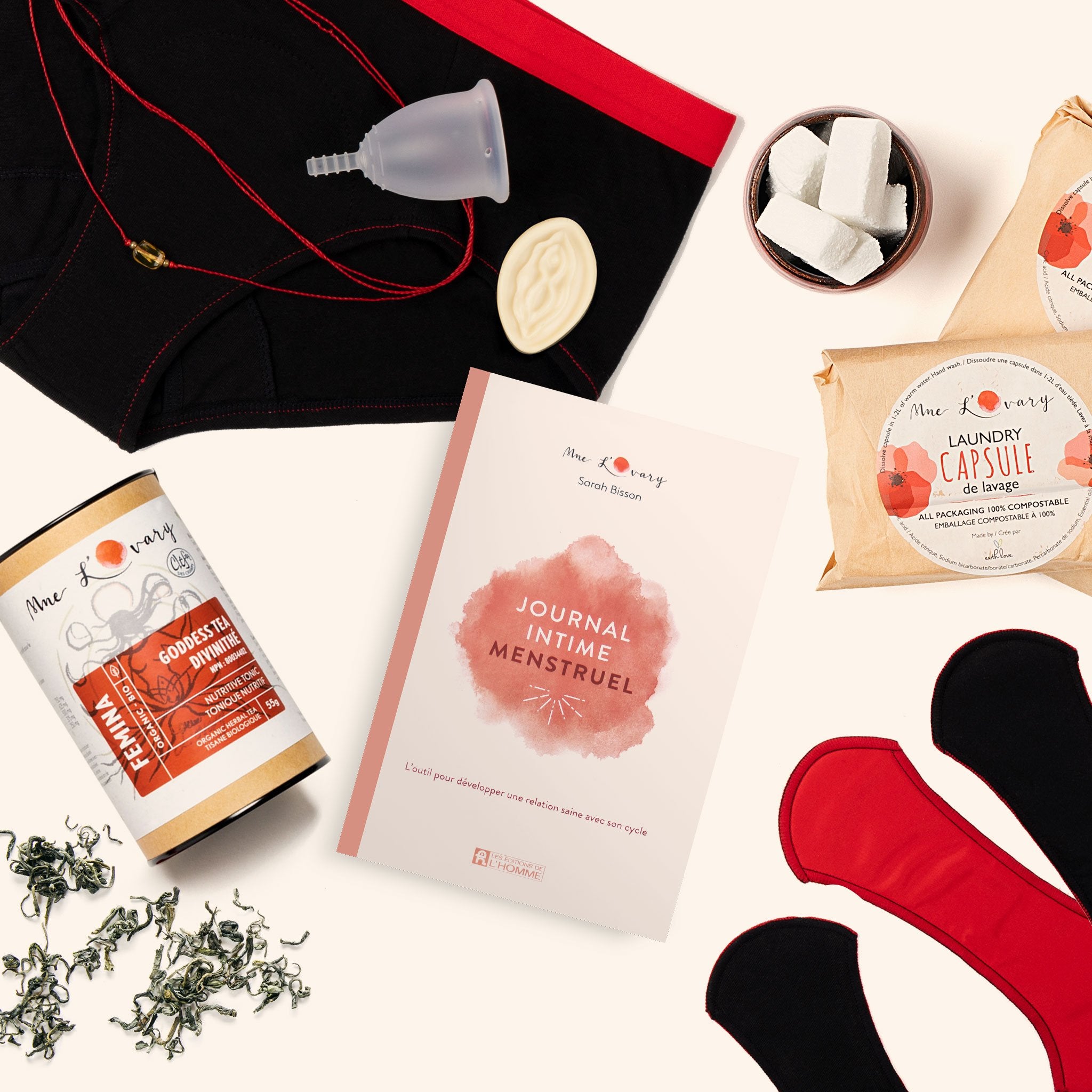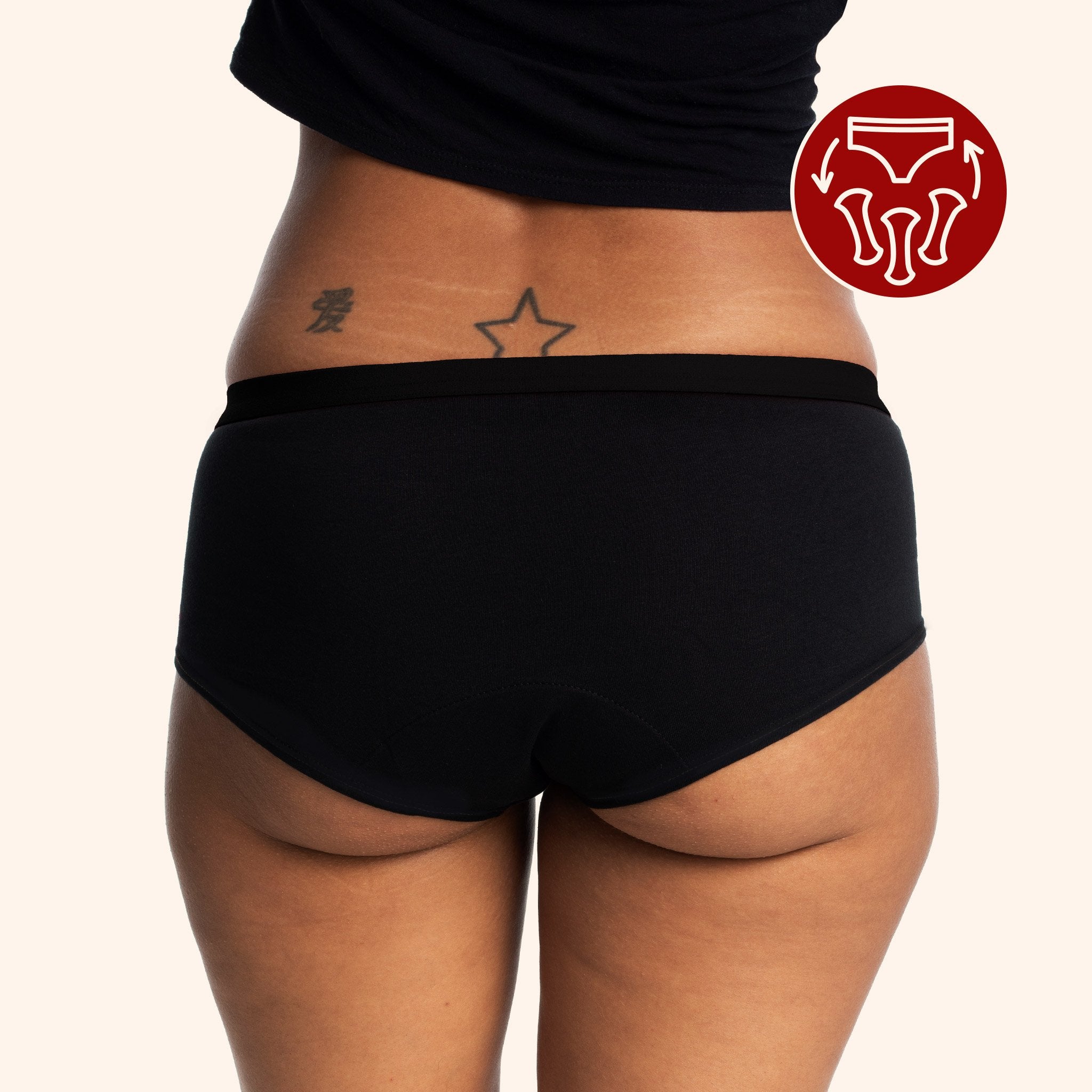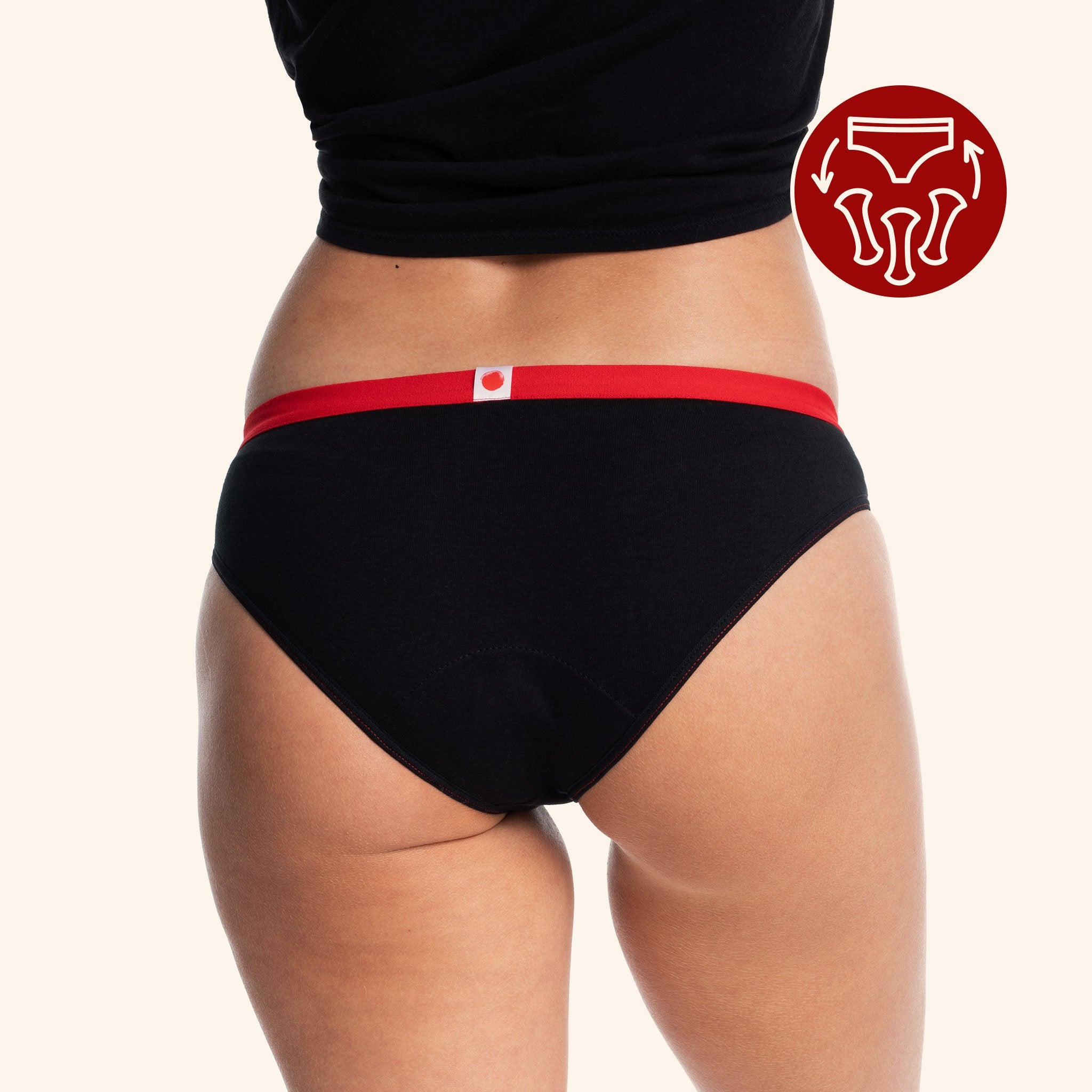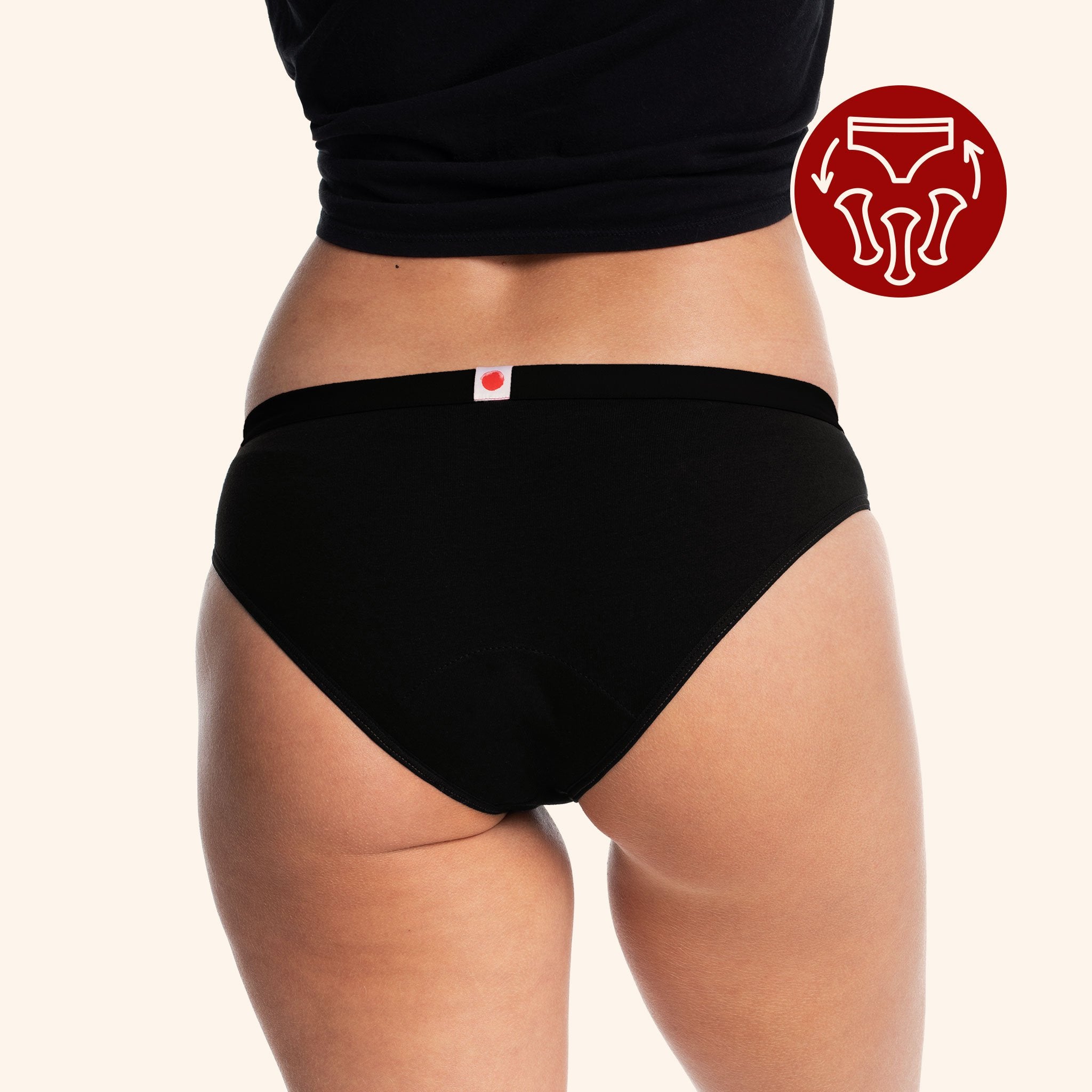Postpartum depression : symptoms and treatments
The arrival of a baby is synonymous with great upheaval in a woman's life.
While in most cases adaptation takes place naturally over a few weeks or months, complications can arise, affecting the mother's recovery.
In such cases, the whole family is often thrown into turmoil.
The main complication that can arise after childbirth is called "postpartum depression". In fact, it affects one mother in five, according to statistics from the Institut national de santé publique du Québec.
Postpartum depression generally occurs in the weeks following childbirth, and sometimes several months later, in cases of late postnatal depression.
If untreated, post-delivery depression can last for months or even years and have a significant impact on the baby's development and, in the longer term, on the relationship between mother and child.
So it's crucial to know how to recognize symptoms so you can seek appropriate treatment quickly.
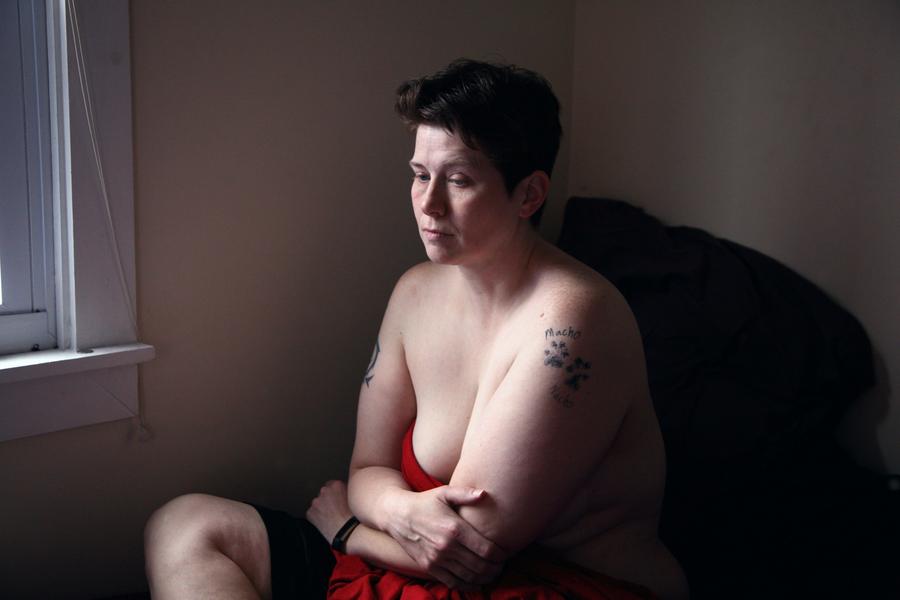
Symptoms of postpartum depression
Emotional symptoms
The many symptoms of depression after childbirth can manifest themselves on several levels. From an emotional point of view, an afflicted mother may experience the following:
- Deep, persistent sadness, often accompanied by a sense of hopelessness or doom.
- An irrational fear of being a bad mother, of committing a dangerous act, of harming or hurting her baby.
- Excessive anxiety about leaving the baby alone, even for short periods of time.
- Obsessive preoccupation with the baby's health or safety, sometimes accompanied by compulsive rituals to protect them.
- Extreme irritability or uncontrollable anger outrages, sometimes directed at the baby, the partner or other family members.
- A feeling of emotional disconnection or detachment from the baby, even in the presence of appropriate physical care.
Physical symptoms
Although postpartum depression is a psychological affliction, the fact remains that the body often reacts physically to what's going on in the mind. A series of physical symptoms can be experienced by the suffering mother, including:
- Extreme fatigue during the day and trouble sleeping at night.
- Digestive problems such as nausea, bloating or gastrointestinal disorders.
- A change in appetite, whether or not accompanied by weight loss or gain.
- Various aches and pains such as headaches, stomach aches, muscle or joint pain.
- Unexplained somatic symptoms such as tingling, dizziness or heart palpitations.
Behavioral symptoms
In addition to psychological and physical symptoms, a mother suffering from postpartum depression may display unusual behaviors.
She may tend to isolate herself socially and withdraw from her usual activities.
She may also make repeated visits to the pediatrician with the baby, for reasons such as feeding or sleeping difficulties.
Of course, this list is not exhaustive, and other abnormal behaviors can be observed in a new mother suffering from depression.
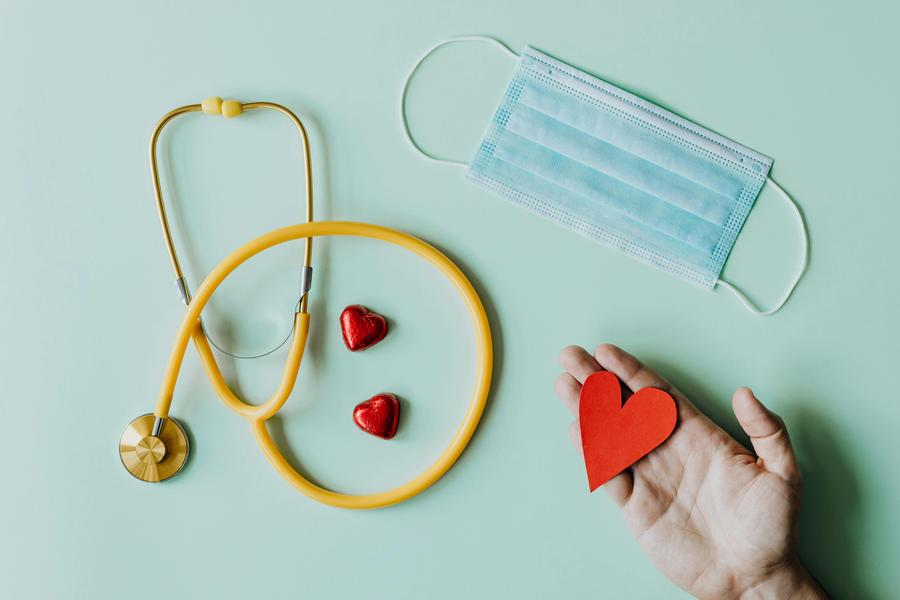
Can postpartum depression be treated?
The emotional, physical and behavioral symptoms mentioned above can be particularly disturbing, but fortunately, with the right diagnosis and treatment, postpartum depression can be treated.
If you think you're suffering from postpartum depression, consult your doctor or psychologist, who will discuss with you which treatment is best suited to your situation.
Your solution may lie in a combination of the various therapeutic, pharmacological and alternative approaches available, some of which are listed below.
Treating depression without drugs
It is possible to treat postnatal depression without taking medication. Among the various approaches used, let's mention the main ones.
Cognitive-behavioral therapy
Cognitive-behavioral therapy can help identify and modify the thinking patterns that contribute to pos-partum depression.
It also provides tips on stress management strategies, problem-solving and improved parenting skills, all of which will help moms recover from depression.
Support groups
Support groups offer a safe space where mothers can share their experiences and feel understood and supported by other women in similar situations.
They reduce the mother's isolation and reinforce her sense of belonging, and offer practical advice to increase her resilience in regards to her new role.
Your favorite Web search engine can help you find resources in your area, so don't hesitate to use it.
Physical exercise
These days, it's no secret that exercise is a near-miraculous remedy that releases endorphins and other happy hormones, helping to reduce stress and improve overall mood.
What's more, it promotes the body's recovery from childbirth, boosts self-confidence and offers a moment of relaxation and distraction from everyday responsibilities, all of which can do wonders in reducing the intensity of depressive symptoms.
Find activities you enjoy, such as walking, yoga, cozy cardio or swimming, and gradually incorporate them into your daily routine. You should start to feel an effect quickly.
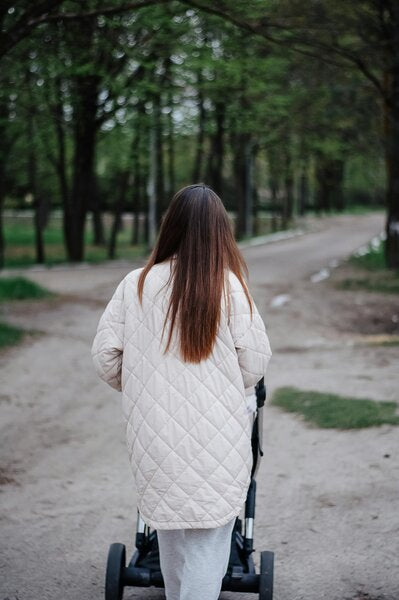
Treating depression with approved medications
Antidepressants for the postnatal period
In some cases of postpartum depression, antidepressants may be prescribed to help alleviate symptoms. Among the types of molecules generally recommended are:
- Selective serotonin reuptake inhibitors (SSRIs). They are often prescribed as a first-line treatment, as they are highly effective and generally well tolerated. Well-known examples include fluoxetine (Prozac), sertraline (Zoloft) and paroxetine (Paxil).
- Serotonin-norepinephrine reuptake inhibitors (SNRIs). They work by increasing levels of serotonin and norepinephrine in the brain. A well-known example is venlafaxine (Effexor).
- Tricyclic antidepressants. They are less commonly prescribed because of their potential side effects, but they can be an option for some women. A well-known example is amitriptyline (Elavil).
The decision to use antidepressants in the postnatal period must be taken with caution, and with due consideration of the potential risks and benefits for both mother and baby.
If you opt for this solution, we recommend that you follow your doctor's recommendations to the letter.
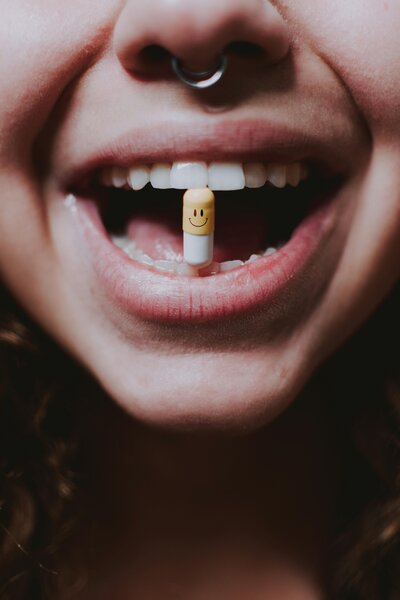
Some alternative approaches
In addition to so-called "conventional" treatments, certain alternative therapies can have a positive impact on the general state of a mother suffering from postpartum depression. Here are just a few examples.
Acupuncture
Acupuncture, traditionally associated with Chinese medicine, stimulates specific energy points in the body, helping to regulate certain emotional imbalances, reduce stress and anxiety, and promote an overall sense of well-being.
Relaxation techniques
Relaxation exercises such as deep breathing, meditation, yoga or guided visualization reduce stress levels and promote relaxation of body and mind.
They can also improve sleep quality and help reduce anxiety and manage unpleasant emotions.
Nutritional supplements and herbal remedies
Certain nutritional supplements and herbal remedies may be beneficial in the treatment of postpartum depression. These include :
- Omega-3s, found in fatty fish such as salmon, and fish oil supplements, have shown positive effects on mood and can help reduce depressive symptoms.
- Vitamin D, or the "sunshine vitamin", is essential for the body and brain to function properly.
During pregnancy, the mother's vitamin D reserves are used to support fetal development. After birth, these reserves may continue to be used during breastfeeding, which can lead to deficiency in the mother.
Supplementation can therefore help breastfeeding mothers to recharge their batteries. - St. John's Wort, a medicinal plant, is sometimes used as a natural treatment for mild to moderate depression. It is thought to work by increasing receptor sensitivity and the amount of mood-related neurotransmitters in the brain, as well as reducing general inflammation in the body.
- Rhodiola (Rhodiola rosea). This adaptogenic plant may help boost mood and strengthen the immune system.
Before taking any nutritional supplements or herbal remedies, it is essential that you consult a health professional at all times, but especially during your postnatal period.
You need to make sure they're safe for both you and your baby, and compatible with other medications you may be taking, now or in the future.

Can postpartum depression be prevented?
The truth is, it's difficult, if not impossible, to completely prevent the development of postpartum disorder in a new mother.
On the other hand, there is a wide range of solutions that can be put in place as soon as a pregnancy is announced, and which can help minimize the risk of developing the trouble, or reduce its symptoms and duration.
Preparing for childbirth and motherhood
First of all, proper prenatal support is essential. Consult a healthcare professional (family doctor, gynecologist, midwife, etc.) during your pregnancy for complete and regular medical follow-ups. This will help detect any mental health problems at their source.
If you have a history of depression, anxiety or other mood disorders, you may also want to consult a psychologist for additional support, and to help develop stress management strategies in advance.
There are also birth and parenthood preparation courses you can take, which can help you feel better prepared and more confident in your role as a parent.
These courses often offer information on the mother's mental health and can provide advice on coping with stress and emotional changes after the arrival of baby.
Good social support is necessary to help reduce a mother's emotional burden after childbirth. Surround yourself with people you trust and get them involved.
Communicate openly about your needs and concerns, so they'll know better how to help you. And if someone offers you help, accept it.
Equip yourself with the right products and accessories to take good care of yourself after giving birth. For postpartum lochia, make sure you have a few washable menstrual panties that you can reuse when your menstrual cycle resumes its normal rhythm.
You can also read the guide we've written to help you choose the best postpartum panties.
Mme L'Ovary panties are healthy and PFAS-free. They're ideal for that sensitive period where your body is raw.
If you're already wearing them, we encourage you to buy a few extra maxi pads for heavy flow, especially for the first few days after giving birth.
You can also go straight for the Postpartum Kit, which we've thought up and designed especially for that special time of your life.
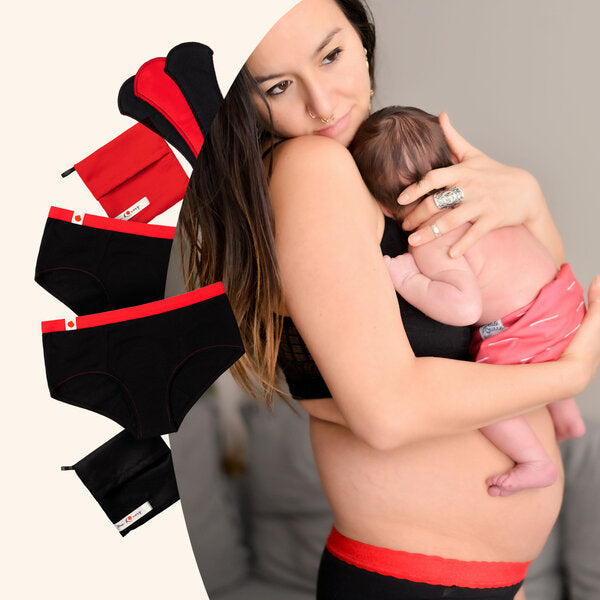
Adopting a healthy lifestyle is key
But prenatal support, a strong social circle and the right accessories won't do you any good if you don't have a healthy lifestyle to support your recovery.
Here are a few good habits you can adopt to reduce your chances of falling into depression, both after childbirth and in your life in general.
- Exercise regularly. Intensity isn't essential; consistency is.
- Adopt a healthy, balanced diet. Avoid processed foods rich in sugars, in favor of raw foods that nourish the body and support the mind. Drink relaxing herbal teas, and don't forget to treat yourself from time to time.
- Make time for activities you enjoy, whether it's reading a book, taking a hot bath, listening to relaxing music or just going for a walk.
- Promote restful sleep by closing your screens at least one full hour before bedtime. Create a calm, comfortable atmosphere in your bedroom by using a room mist or sparse, subdued lighting.
- Identify the sources of bad stress in your life, such as overwork or difficulty establishing clear boundaries with others, and see how you can minimize their impact on you, at least while you recover from your pregnancy. If necessary, consult a mental health professional such as a psychologist or psychotherapist. An occupational therapist can also help you adapt your physical environment to your new situation.
- Express your emotions in a healthy, constructive way. Talk to someone you trust, write in a diary or take up an artistic activity such as drawing, painting, playing music or even dancing, if you feel up to it.
Postpartum selfcare is not to be neglected
The team behind Mme L'Ovary is made up almost exclusively of women, some of them mothers.
So we know how important it is to take care of yourself before, during and after childbirth, and we even have written a little guide to selfcare in the 4th trimester of pregnancy. Feel free to read it if you feel like so.
If you think you're suffering from postpartum depression, know that our hearts go out to you. You're not alone, and it's treatable, but it's essential that you get the help you need.
And if you ever feel like you're about to crack, don't wait, call 911.
Take care of yourself.
With L’Ove.




